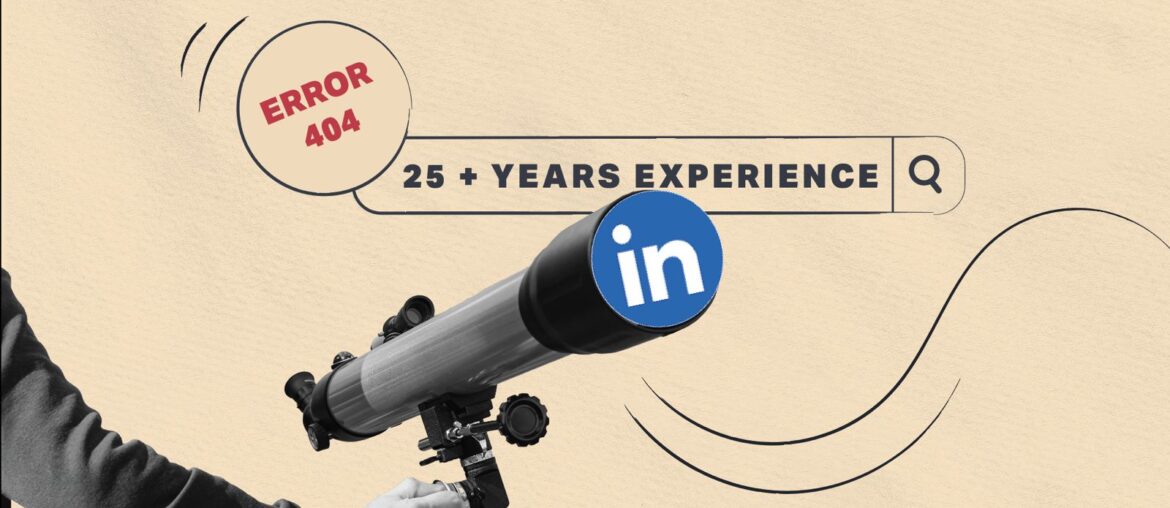Changing jobs in midlife can be an uphill journey, for two reasons—there are very few companies actively hiring people in their 40s and 50s, and the few that are doing that are really tough to find. Nupur searches LinkedIn to see what comes up and shares her learnings.
Another LinkedIn login, another post about a 40- or 50-plus ‘sharing their gratitude’ about a long stint at their organization. This time a senior industry leader who I thought was on their way up. A few days later, their profile picture has the ‘Open for Hire’ frame on it.
This is not the first such post. Every week, I’ve been seeing a lot of posts by people in midlife—people I thought were at the peak of their careers—changing gears and looking for new opportunities. It might seem anecdotal, and maybe my feed is algorithm driven, but I think this needs a double-click.
Where are all the jobs?
When I quit my job almost 18 months ago, I was at a crossroads—should I look for another job or become a freelancer or consultant? I chose the latter. Well, I say ‘chose’ but it wasn’t much of a choice really.
The fact is, there was nothing compelling for me to move towards. I had been wondering about my next step for more than a year. While I hadn’t been actively searching for an alternative but had been feeling a little…well…stuck. As a single parent, I knew I had to be pragmatic about my priorities. So, I started looking at what was out there. Pretty soon I found out that there really weren’t any good opportunities for a person like me, ie, in my mid-40s.
And now, 18 months later, prompted by these frequent posts, I decided to search again. Mind you, this was a quick 15-minute search on LinkedIn, not an in-depth study, so take the results at face value. But I do think that this search helped me think about what questions to ask and who to ask them to.
Some learnings from my trip down the rabbit hole:
No way to search by years of experience
There is no easy way to search for jobs by number of years of experience. The filter you get for ‘Experience’ has roles from Internship to Executive. Good luck trying to correlate that in terms of duration of your career.
A cap at 15 years
It seems that years of experience cap out at 15 years. I didn’t see any job post that asked for more than that. Assuming that most people start working at around 24-25, that means 40 is the upper age limit. So, unless you are working for the government, think about retiring at 40!
Industries and their biases
As expected, tech wanted its young bros. Marketing agencies (across disciplines) too wanted people with ‘energy’, ‘agility’, and other terms that signal that they don’t want people above a certain age.
The two fields where I saw room to maneuver were content writing and editorial skills, and academia. The former is a key area freelancers operate in and so there is usually no age mentioned. The latter is probably the only place where age is an asset…but not too much. In academia, the teaching profiles might be more open to the 40-60 age group, but the administrative functions still look at the typical parameters.
The fractional CXO route
Ever since the pandemic, there has also been a mindset shift in the way people look at their jobs. Being accessible to both, aging parents and growing children is something that a midlifer juggles every day, and the lockdown showed us that it was possible to do that.
A trend that emerged from that need is of experienced professionals supporting multiple companies as fractional CXOs. This is a win-win for both, the professional and the company. It gives the organization a chance to get high quality, experienced talent at a consultant’s cost, and for a midlifer with experience to share, this is a perfect way to extend their employability beyond that 40-45 cap.
A bridge between companies and talent
This is, of course, the result of a personal and limited exploration. But I think there is an opportunity to acknowledge that there is an entire generation of talent waiting to be tapped. It is a generation that the business environment has nurtured, trained, and grown over the years, but is now being overlooked.
Companies today are struggling with quality talent. And it is right there for them, just not in the age group they are looking in. I understand that it is not easy. It will need a systemic change to accommodate for limitations that come with age while strategically tapping into the possibilities that come with experience. This might mean rethinking hierarchy, restructuring teams, training, and more. Most importantly, though, it will need a mindset shift–from looking at talent through the lens of years of experience, to the experience in those years.




